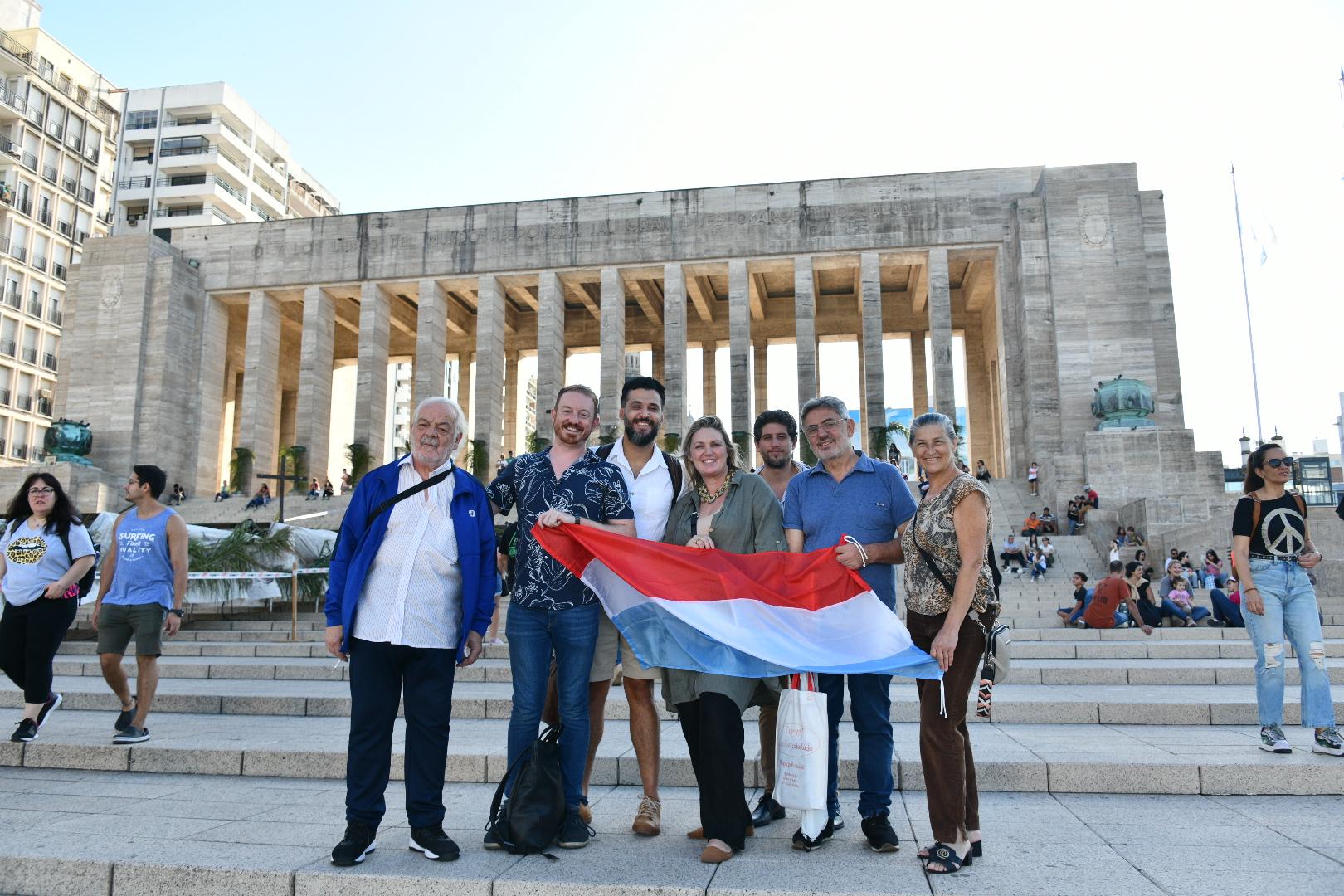Discover and Connect with Businesses Driven by Luxembourg Dual Citizens – Learn More
To turn on the subtitles, please press the play button, followed by the CC icon. To change languages, click the gear icon and “Subtitles/CC”.
The Argentine-Luxembourgers
Updated: January 9th, 2024
Written by: Daniel Atz with Lauren Lowell
As of December 31st, 2024, 541 Luxembourgish citizens were living in Argentina. Who are these Argentine-Luxembourgers? Explore this interactive study to find out.
The Argentine-Luxembourgers
To turn on the subtitles, please press the play button, followed by the CC icon. To change languages, click the gear icon and “Subtitles/CC”.
Updated: January 9th, 2024
Written by: Daniel Atz with Lauren Lowell
As of December 31st, 2024, 541 Luxembourgish citizens were living in Argentina. Who are these Argentine-Luxembourgers? Explore this interactive study to find out.
View Our Other 🇦🇷🇱🇺 Studies: Ancestors | Dual Citizens | Survey | View All Studies
Background
Since 2018, LuxCitizenship has been producing interactive case studies on the new Luxembourgish dual citizens. After LuxCitizenship’s trip to Argentina to meet with the Argentine-Luxembourger 🇱🇺🇦🇷 community in April 2023, we were driven to expand our case study of the 3rd largest Luxembourgish dual citizen community in the Americas.
In its first edition, the 2024 Argentine-Luxembourgers study is based on data from Luxembourg’s Ministry of Justice, National Archives, Data.Public.Lu, CTIE, STATEC, and our own study of 124 Luxembourgish dual citizens and 28 Luxembourgish ancestors.
We think it’s high time to start learning about this population. So we asked for them to speak for themselves. The results follow.

Context
In 2008, the new Luxembourg Nationality Act introduced the concept of dual citizenship in Luxembourg. Since then, thousands of people have obtained Luxembourgish dual citizenship through ancestry.
Where We Last Left Off
In our ancestor study, we established that our 124 dual citizens had 28 Luxembourgish ancestors. These ancestors mostly came from Luxembourg in the late-1800s, and the largest group settled in Benito Juárez, Buenos Aires Province.
Luxembourgish Ancestor Place of Birth
Ancestor Residence in Argentina
Now Meet Their Descendants
Each of these 28 Luxembourgish ancestors started their own families in Argentina. Today, their 124 descendants included in this study cover a wide range of demographics and walks of life.
Respondent Age
Respondent Gender
Generations Removed from Ancestor
Where Are They From?
Much like their Luxembourgish ancestors, many of our study’s respondents call the provinces of Santa Fe and Buenos Aires home. 65.3% of all our respondents live in these two provinces alone, which was the place of immigration for 57.1% of the ancestors we studied.
Respondent Province of Birth
Respondent Province of Residence
Mobility – How “Close to Home” Are the Argentine-Luxembourgers?
21.4% of respondents no longer live in the province where their Luxembourgish ancestor resided. Of these same respondents, 25% of them also do not live in the state where they were born.
While this is a comparable percentage to the Brazilian-Luxembourgers, it is 1.9 times lower than that of the American-Luxembourgers. Overall, this is a moderately mobile population.
Born in Province Where Ancestor Lived
Live in Same Province as Ancestor
Born + Live in the Same Province
Where Have They Moved?
Despite the deep roots that Argentine-Luxembourgers have in specific regions in Argentina, some respondents have relocated during their lifetimes. The most common trend we see is a shift from rural to urban areas, particularly Buenos Aires.
Where Have Respondents Moved Since Birth?
Respondents Living Abroad, By Country
While the majority of our Argentine-Luxembourger survey respondents currently live in Argentina, 16.9% of respondents reported having lived abroad during their lifetimes.
About the Families
41.9% of all Argentine-Luxembourger dual citizens surveyed indicated that they are married. In addition, 58.9% of all respondents reported that they have children. The largest group among them has two children, reflecting a demographic trend common in Argentina.
Married
# of Children
Education Level
36.3% of respondents indicated that their highest level of education was high school. In addition, 56.5% of all respondents have pursued higher education. This shows a highly educated populace among Argentine-Luxembourgers.
Education Level Achieved
Professional Career
Much like the Brazilian-Luxembourgers, the largest percentage of our Argentine respondents work for the government as civil servants or contract employees. On the contrary, much less of the Argentine-Luxembourgers report working in healthcare than their American cousins.
Of our Argentina respondents, 29.8% declined to answer the question about if they were actively working or what is their professional career path. By comparison, only 20.5% in Brazil and 5.8% in the US declined to answer this question.
Career Path

Are you ready to learn more about the Argentine-Luxembourgers?
Continue on to our Argentine Dual Citizens Survey to learn more about the applicant’s motivations and future plans.
Are you ready to learn more about the Argentine-Luxembourgers?

Continue on to our Argentine Dual Citizens Survey to learn more about the applicant’s motivations and future plans.
Argentine Dual Citizens Survey
All Case Studies
